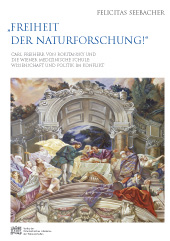Felicitas Seebacher
ist Historikerin an der Universität Klagenfurt
|
 |
Mit der Gründung der Jüngeren oder Zweiten Wiener Medizinischen Schule löste Carl Rokitansky eine wissenschaftliche „Revolution” aus. Gemeinsam mit Joseph Skoda und Ferdinand von Hebra strebt er eine naturwissenschaftliche Medizin an, die alle naturphilosophischen Erklärungen von Krankheitsbildern obsolet macht. Die Pathologie wird zur Basis neuer Disziplinen und steuert die Spezialisierung der Medizin. Die „Wiener Medizin” erreicht mit Rokitansky internationale Anerkennung.
Der Gelehrte repräsentiert den erfolgreichen Bildungs- und Wissensmanager. Bestimmt durch eine humanitäre Grundhaltung, vermittelt er in Krisenzeiten zwischen Institutionen, Regierung und katholischer Kirche. Die Widerstände, welche ihm entgegengesetzt werden, bricht er mit Diplomatie und Verständnis. Dem Wissenschaftspolitiker gelingt eine Vernetzung der wichtigsten akademischen Institutionen der Habsburgermonarchie. Rokitansky wird zur prägenden Persönlichkeit der Ära des Hochliberalismus. Sein lebensbegleitendes Motto „Freiheit und Fortschritt” führt sowohl zu Universitätsreformen, als auch zur wesentlichen Verbesserung des Gesundheitswesens.
… With the founding of the New or Second Vienna School of Medicine, Carl Rokitansky released a scientific “revolution”. Together with Joseph Skoda and Ferdinand von Hebra, he sought scientifically based medicine that would make nature-philosophical explanations of disease obsolete. Pathology became the basis of new disciplines and lead to medical specialization. With Rokitansky, the Vienna School achieved international fame. The scholar was also a successful manager for education and science. Based on his humanitarian beliefs, during times of crisis he acted as an intermediary between academic institutions, the government and the Catholic church. |




 Home
Home
 Print
Print
 References
References
 Share
Share